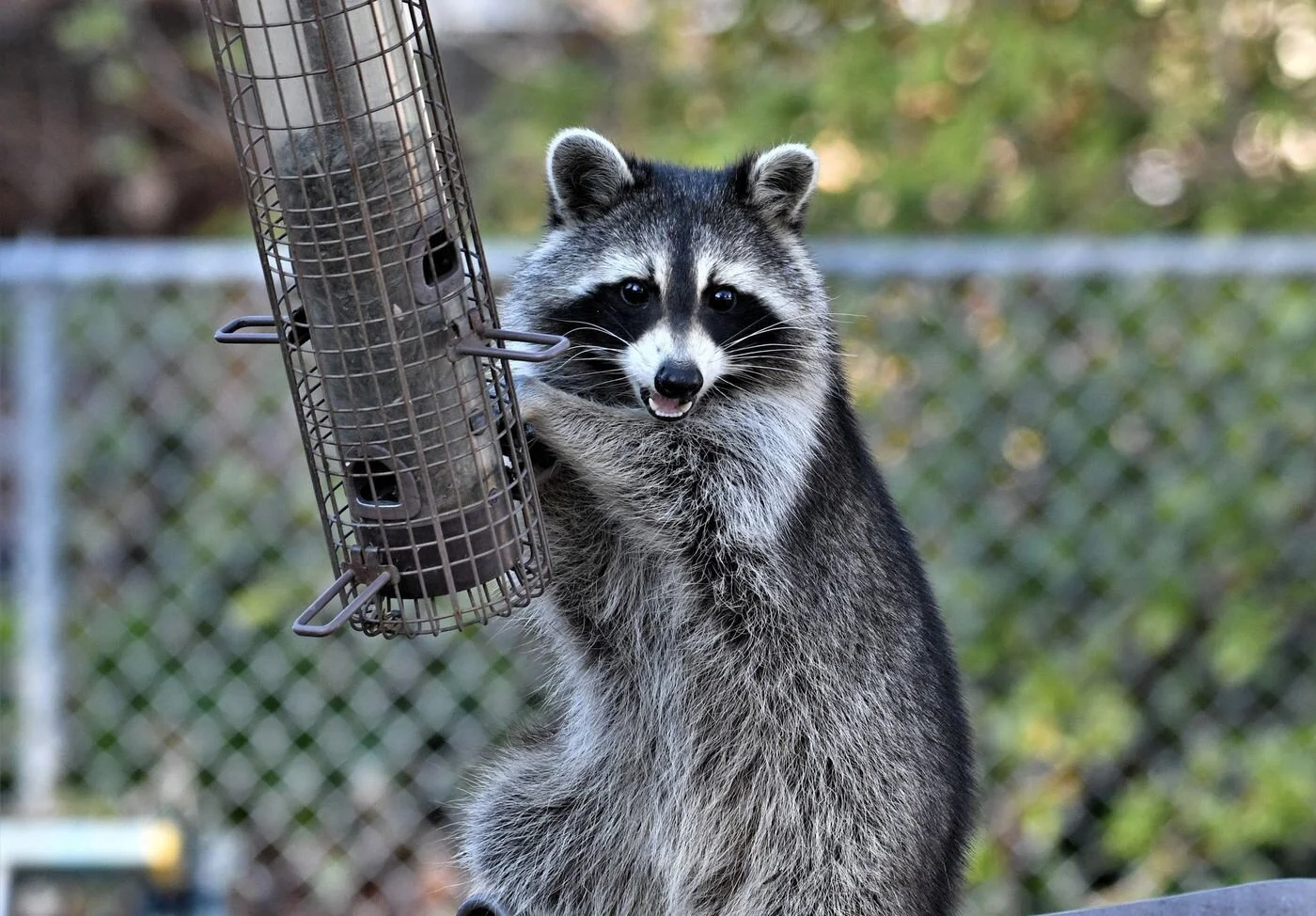You step out in the morning to find your birdfeeder on the ground and squirrels are gathered around it munching away on your deluxe birdseed you just bought, and maybe even on the feeder, too. You cuss the squirrels like any normal person would, and chase the squirrels clapping your hands like a lunatic while your neighbors peer at you from a window with fear and concern. They think being quarantined has finally gotten to you. Admit it, you’ve done this. But hold on. Maybe you’ve cussed the wrong animal.
Finding your feeder on the ground in the morning is likely due to the activities of our TN state mammal, the Raccoon. They routinely work the night shift raiding bird feeders, hummingbird feeders, and trash cans. The squirrels are simply taking advantage of the leftovers. Perhaps Raccoons know if you see squirrels gathered around your feeder on the ground you will conclude they were responsible. Raccoons just may be that smart. Just because you never see a Raccoon doesn’t mean they aren’t coming around. Raccoons are extremely intelligent and resourceful, and can efficiently remove birdfeeders from hooks and hangers in trees, climb a ½” diameter pole with a squirrel baffle in the way, fidget with lids on seed containers until they get them off, and will eat all the cat or dog food you left out for Fluffy or Fido. They are likely the best example of a true omnivore. They are extremely adaptive and use their dexterous front paws and long fingers to find and feast on a wide variety of fare. And they are as at home in the forest as they are in urban areas.
The next few months are typically when we hear the most frequent and numerous complaints about damaged feeders. Why? Just like birds consuming more because of the breeding season Raccoons are also having young, cubs as they are called, and are out every night looking for easy food sources like your feeders.
Females have one to seven cubs in spring to early summer. The young raccoons often spend the first two months or so of their lives high in a tree hole. Later, mother and children move to the ground and the cubs begin to explore their surroundings.
Unfortunately, the list of solutions is limited. The first recommended remedy is to remove the feeder, or feeders, in the evenings leaving nothing for the raccoons to find when they visit at night. Yes, this is inconvenient but it isn’t permanent. Usually two weeks of this strategy is enough to cause the raccoons to change their search pattern. It is extremely effective and inexpensive.
The second choice involves hardware. Our heavy duty shepherds pole, or 1” diameter pole system, with a raccoon baffle will work to keep these fur bearing bandits from getting your birdfeeders. A Raccoon baffle is double the length of a squirrel baffle and larger in diameter, too. Ones that we stock are made to fit certain ½” diameter poles up to a 1 3/4”
Many of you have heard that feeding them will keep them away from your birdfeeders. This typically just encourages more raccoon traffic. They will eat what you intended for them to have and get your feeders too.
As for live traps to relocate the animal I am not an advocate, particularly this time of year when they have cubs. And there are always more Raccoons that will come along.
So, next time you see your feeder on the ground don’t be so quick to blame the squirrels.


